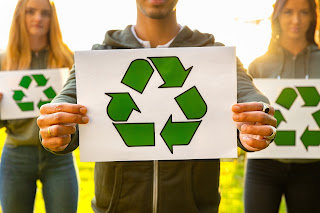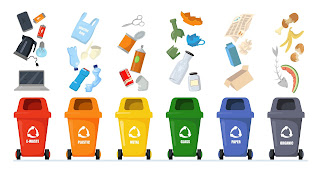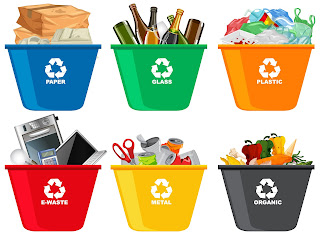What’s Next in Waste Management? 5 Recycling Trends You Need to Know About
Love it or hate it, recycling is here to stay. In the world of waste management, we have come a long way since the days of just tossing things in the trash – even our planet Earth has taken notice! From composting and guerilla gardening initiatives to groundbreaking technologies like 3-D printing and upcycling, there are some interesting developments happening in the realm of recycling. In this blog post, we will explore five of the most exciting new trends that are transforming how we approach sustainable practices. Get ready for a journey into green living as you find out more about what's next in waste management.
The Latest Trends In Recycling & Waste Management
- Zero-waste lifestyle
The zero-waste lifestyle is all about preventing waste from going into landfills. It means recycling everything, composting, and avoiding single-use items. The zero-waste lifestyle is more challenging and requires a lot of effort, but it’s worth it. You can start by making small changes in your daily routine, like using a reusable water bottle, bringing your own bags to the grocery store, and choosing products with minimal, recyclable packaging. - E-waste recycling
Electronics have become a significant part of our lives, but disposing of them properly is crucial since they contain hazardous materials like lead, mercury, and cadmium. E-waste recycling is the process of recovering precious metals and other materials from obsolete electronics. Recycling e-waste helps reduce the environmental impact of mining and manufacturing new materials. Many companies and organizations collect e-waste from consumers, and you can search for a nearby drop-off location. - Food waste recycling
Food waste is a significant contributor to climate change since it emits methane gas when it decomposes in landfills. Food waste recycling is the process of turning food waste into compost or biofuels. Composting food waste reduces the need for chemical fertilizers and improves soil health. Many cities and municipalities have started food waste collection programs, or you can compost your food waste at home. - Upcycling
Upcycling is the process of transforming waste or unwanted materials into new products with higher value or quality. Upcycling reduces waste and pollution by creating functional and beautiful products from waste materials. Upcycling can be done on a small or large scale, and it's a great way to turn trash into treasure. Upcycling can be as simple as turning an old t-shirt into a reusable shopping bag or as complex as building a house from shipping containers. - Commingled recycling
Commingled recycling is the process of mixing recyclable materials like paper, plastic, and glass together in a single bin for collection. Commingled recycling simplifies the recycling process and reduces contamination. Many cities and municipalities have adopted commingled recycling, and it's an easy way for consumers to recycle more efficiently.
Conclusion:
Recycling is an essential step towards a sustainable world, and it's constantly evolving. The new recycling trends mentioned in this blog post are just a few examples of what's next in waste management. By adopting these trends, we can reduce waste, conserve resources, and create a cleaner and healthier planet. So, let's embrace these trends and make recycling a daily habit. Remember, every small step counts towards a brighter future.




Comments
Post a Comment